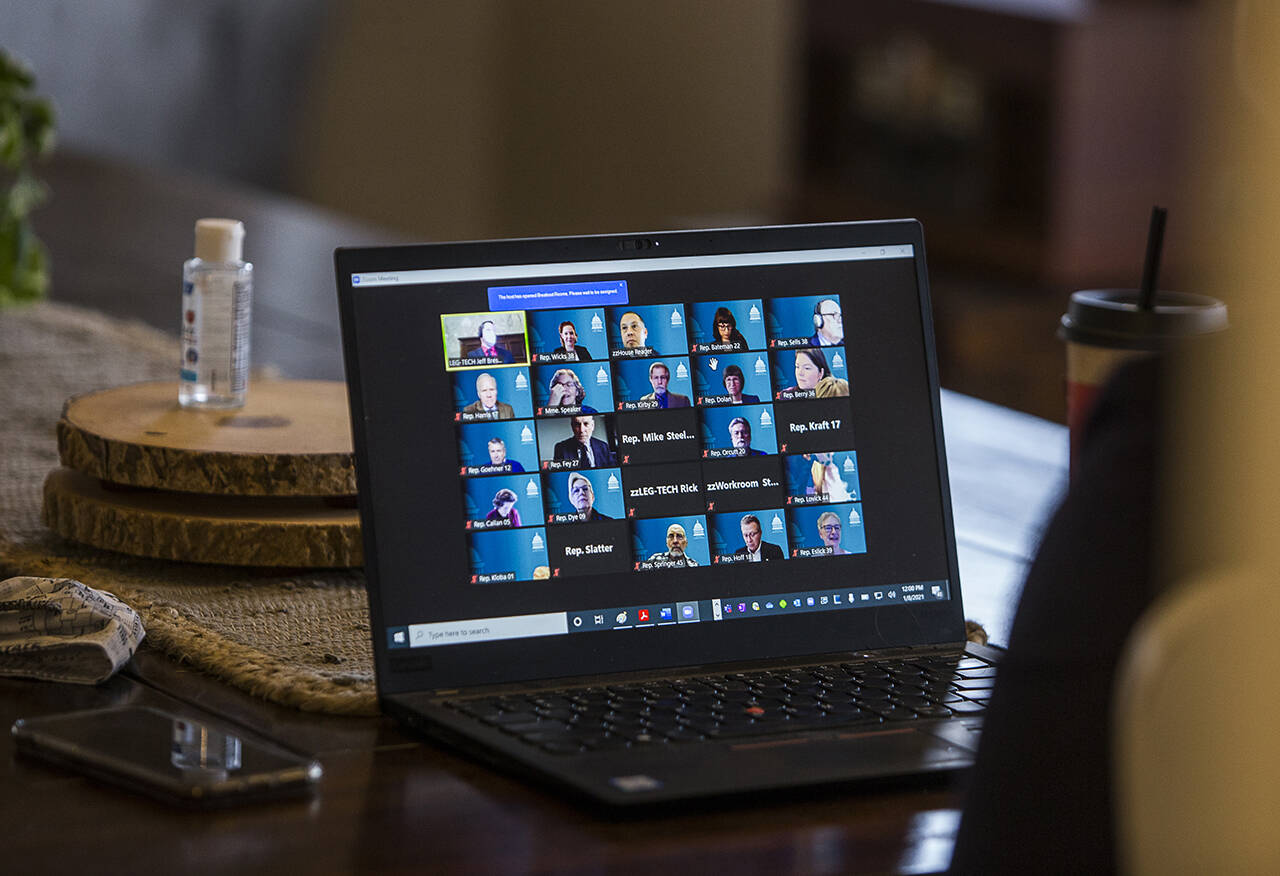When the pandemic forced city councils and school boards to stop meeting in person and start conducting business remotely, a funny thing happened.
More people showed up to watch.
And when possible, they voiced their views.
“The silver lining of COVID was people who struggled to get to meetings were able to participate in government,” said Rep. Emily Wicks, D-Everett. “There is so much more engagement.”
She authored legislation, which awaits Gov. Jay Inslee’s signature, to ensure that surge in public participation doesn’t disappear after the pandemic.
“The state Legislature did citizens a favor when it passed (House Bill 1329),” said George Erb of the Washington Coalition for Open Government. “It is one of the more ambitious updates of the state Open Public Meetings Act in recent years … by recognizing the usefulness of digital technology and incorporating some of the civic lessons we learned during the pandemic.”
House Bill 1329 updates the state’s open meeting law to encourage government bodies to keep offering an option to participate remotely even when they meet in person.
It gives local governments greater latitude in how they conduct business after the declaration of a local, state or federal emergency. It says if a public agency decides it is not safe to meet in person, it can go all remote or adopt a hybrid format, in which there is limited in-person attendance of the public coupled with a means of joining remotely.
In the current pandemic, agencies cite an emergency declaration issued by Inslee as the reason for going remote.
House Bill 1329 also says if agencies are gathering virtually, they must provide an option for the public to listen, be it by telephone, web streaming, local cable television station or other means.
Another provision assures residents have a chance to comment on agenda items before a governing body acts on them. And if a board is meeting in person, it should also give folks the ability to weigh in remotely.
A small change requires that if an elected board meets behind closed doors for an executive session, it must spell out in the minutes for that meeting why the public was excluded.
One of the stickier points centered on recording of public meetings.
The bill, in its final version, encourages school boards, councils and other governing boards to make an audio or video recording of all regular meetings, and to make the recordings available online for at least six months.
As drafted, the bill required such recordings. Cities, counties, schools and special purpose district pushed back, saying it could become burdensome to maintain and the audio files may gobble up space on their respective websites.
Wicks introduced the bill in 2021 at the behest of Joe Kunzler of Skagit County. Kunzler is known on Whidbey Island for his outspoken support of the Navy. He delivered an initial draft that she and legislative staff smoothed. It took two years to get passed.
Kunzler relies on public buses to get around. The transit advocate said he had been monitoring fledgling merger talks between Community Transit and Everett Transit. Getting to a Community Transit board meeting pre-pandemic proved challenging.
Being able to participate remotely has made a huge difference, Kunzler said. It was, and is, an opportunity he didn’t want to lose whenever the public health emergency ends.
“Ultimately, if this bill achieves more accessible public meetings, more inclusive public comment … and more transparency — all to rebuild trust in government, then this bill is a Super Bowl winner,” he wrote in an email.
“I don’t think it should be hard to at least have a speakerphone for folks to call into to have some equity during oral public comment,” he said. “And public comment before final action should be a right.”
He said he didn’t think it was too onerous to require recording and videotaping meetings either.
“Sadly due to a need to get the local government lobby to lighten up about the bill, HB 1329 ended up in compromise,” Kunzler said.
Wicks is confident agencies will be recording their public meetings in the not-too-distant future, if they’re not doing it already.
“I think it is the way the world is heading,” she said. “Where it is needed and where there is pressure, it will happen.”



